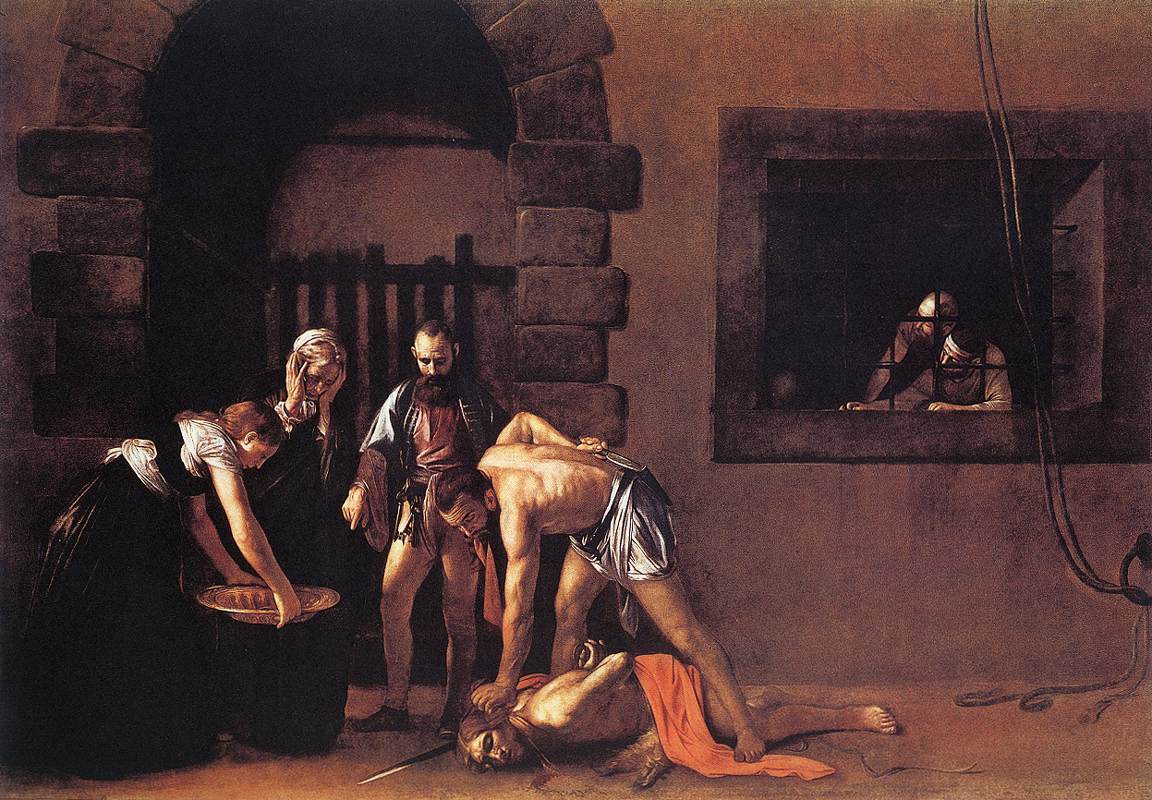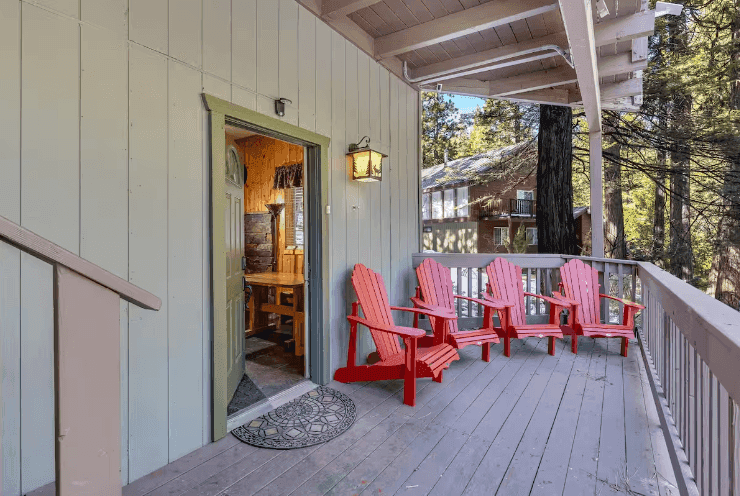“The first forty years of life give us the text: the next thirty supply the commentary.” —Schopenhauer

Beheading of Saint John the Baptist (1608) by Caravaggio
Dear Friend,
Newsletter has been irregular as I’m swamped but a couple things for you today:
There’s a meetup in NorCal on July 24-27. Please come if you can!
Some of the lessons I’ve learned about Plato writing this book
—Justin
NorCal Meetup: Thursday, July 24th to Sunday July 27th

The Cabin
Longstanding member and author Matthew Stanley is organizing an Other Life retreat and mini-conference for individuals and families over the weekend of July 24-27 at a cabin near Arnold, CA. I think I’ll be able to make it!
The cost starts as low as $500 for the weekend and INCLUDES CHILDCARE if you want to bring kids. He’s also arranging airport pickups from Sacramento, and there will be a relaxed schedule of talks and activities. More info at the link.
I've been told some of our friends who run Theory Underground are coming. They’re building something pretty cool, I think, I'm eager to learn more about their operation.
Register here and or hit reply with any questions. He’s going to close signups shortly, after they book just a couple more spots.
The Life of Plato as an Independent Scholar
This week I put the finishing touches on the Plato chapter of my upcoming book, The Independent Scholar.
I’m honestly learning so much writing this book it’s crazy to me that very little of this has been written down in one place yet…
Given that Ancient Greece was a highly decentralized culture with no modern institutions, it closely matches our own digitally decentralized culture at the end of modern institutions.
As a result, the life of Plato is absurdly illuminating for independent scholars today.
Plato's career was motivated by dual political traumas: His family's involvement in a recently deposed tyranny, and then the execution of his teacher Socrates, together meant that he could not pursue glory in the way that most aristocratic youths would have (through a political career).
His solution was to invent a new category, which he called "philosophy."
It was a very conscious branding exercise. Declaring philosophy to be a unique category, opposed especially to "sophistry," was an original and creative act of marketing.
Philosophy would thenceforth be understood as disinterested truth-seeking, in contrast to the “counterfeit knowledge” of the pretenders. How could you distinguish between the true philosophers and the pretenders? Well, Plato would help you—and that was eventually the political function of the Academy. By inventing the category, Plato became the natural authority able to separate the wheat from the chaff.
Plato’s early, combative dialogues were structurally optimized for emotional resonance or what we today would call "engagement," and written for international consumption. Plato performed them at public festivals to get his name out, earn respect, and build a reputation.
When his reputation spreads enough to solicit patronage, and after he sees first-hand how Pythagoras had built his own cult-like school, Plato makes the most significant decision of his life: To build an Academy.
Legally a private religious association, the Academy functioned as a sophisticated kind of "funnel" with a free, public-facing membrane where anyone could come and listen (in the gymnasium) and then several layers of increasingly exclusive filters for increasingly advanced students (in the Academy proper, next door). The Academy was a talent magnet, a research college or "think tank," and eventually a de facto political consultancy.
Its most important product was not ideas or texts per se, but the network itself: a concentration of the smartest individuals in the region, who would spread Plato's ideas for generations to come.
Plato's eventual preeminence was in no way guaranteed by the quality of his thinking or writing (he was not the most famous philosopher in his day). It was secured primarily by his creation of a durable institution and the production of high-quality students.
This is shown empirically in Randall Collins’ book The Sociology of Philosophies: Plato enjoyed the greatest network centrality (quantitatively) and he birthed Aristotle, who went on to be highly generative.

Randall Collins, The Sociology of Philosophies
After a bunch of smaller schools collapse, they get folded into the Academy because it had the most staying power.
Now, that’s how you make it as an independent scholar!
There's a whole chapter in the book breaking this down in detail.
If you haven’t already, pre-order The Independent Scholar.
Slow Work: Build Now to Peak Later

The cabin near Arnold, CA
A final thought about Matthew’s meetup in NorCal, which I hope you’ll attend if you’re in the area.
Matthew’s theme is Slow Work: Build Now to Peak Later.
"…focusing on how we can build individual and communal practices of learning which set us up to do our best work decades from now rather than chasing the latest fads or succumbing to the temptations of the ever-accelerating digital medium.
As someone who’s busted his ass from 18 to 38 trying to establish the best possible conditions for economic and cognitive independence, Matthew’s theme definitely makes sense to me. Every 5 years you can watch a new batch of people become “the thing” and then 5 years later 99% of those people are no longer even putting stuff out. (I’ve never been “the thing” myself but I have been a minor side character in at least 3 different cycles!) The difference is that I’m still working, and I’m still probably hungrier than the average 18 year old. I literally feel like I’m just beginning. And I have a family! Which many people don’t get if they’re overly attached to early career success. So, as I continue to get my money and lifestyle solidified as a real adult with real responsibilities, I genuinely feel like my peak is far in front of me. All in all, I’m very pleased that I’ve played a very long game… I think this is the kind of thing Matthew is thinking about.
Anyway, I wasn’t sure if I’d be able to make this but I’m currently thinking I will. If you’re in the area or a closer follower of this newsletter, make the trip! Nobody ever regrets coming to these things.
Hit reply if you have any questions, I want to help Matthew make this a great event.
Thanks for reading!
Reply with comments, questions, or a brief word about what you're working on.
Until next time,
Justin Murphy